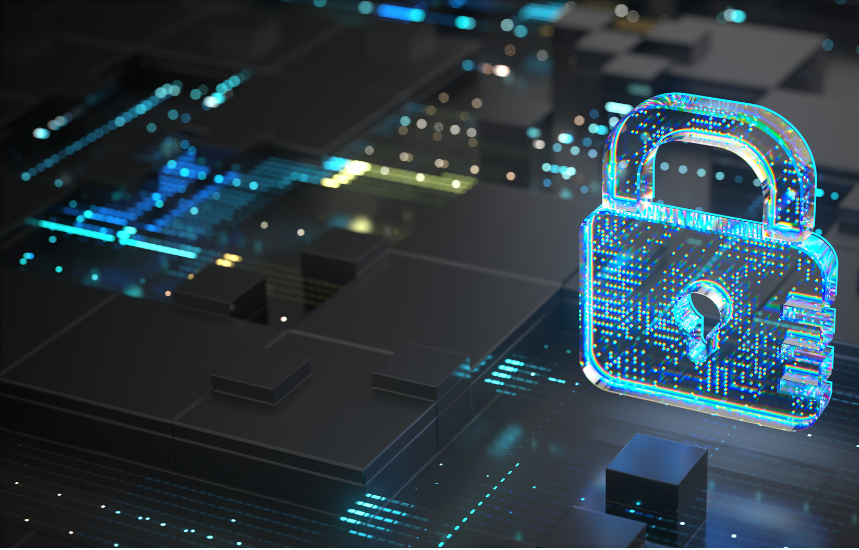Office Copier Maintenance Tips to Keep It Running Like New
Here’s a list of small copier maintenance things everyone can do to help keep the office copier running smoothly for as long as possible.

As much as high-achieving entrepreneurs try, nobody can be in two places at once unless they have a security system in place, including security cameras and video surveillance. While there are many benefits to keeping a constant eye on your business, some of our favorites include the prevention of theft, improved safety and productivity, and the ability to provide evidence when you do need to report a crime confidently.
Security cameras have become an increasingly popular security solution for homes, businesses, and public spaces. These cameras offer a wide range of benefits, including:

Most people worry about customers stealing products, but staff can also become a problem without proper supervision. One of the best benefits of security cameras is the ability to keep an eye on both customers and staff.
According to a 2021 study, 95 percent of businesses suffer from theft in the workplace, and employee theft costs businesses $50 billion annually. In fact, 42.7 percent of total inventory loss in stores is due to employee theft.
All it takes to implement a solution that works is to install a security system. The mere presence of security cameras deters most employees and staff. Others are deterred when they see a fellow employee held accountable for theft using security footage as evidence.
It’s a sad truth that criminals often identify and take advantage of their victims while the victim’s attention is elsewhere. For example, they might steal from a customer’s car while the customer is inside. Or they may lift items from the customer’s backpack or purse while they shop.
One of the most common examples of thievery during business hours is identity theft. One out of five Americans fell victim to identity theft last year. At least 60% of them experienced a resulting financial loss.
Given the array and variety of crimes against customers, while they are in a state of vulnerability while their attention is on shopping activities, it makes sense that more security systems and cameras would benefit consumers and businesses.
When consumers and staff alike feel safe, they are also able to work distraction-free. One of the least appreciated benefits of security cameras is their visibility. People can see that their space is under surveillance, and they relax. The result is a more comfortable, enjoyable customer experience.
Meanwhile, employees are able to pay attention to their work tasks with less time spent watching customers and more confidence that if they see wrongdoing on the part of customers, the employee will have evidence to back them. This sense of security and confidence leads to more productivity and overall employee satisfaction.
While surveillance cameras have various benefits, the added improvement to productivity and the higher customer satisfaction score is a significant, under-recognized, and powerful benefit.
Few tasks are more costly and time-consuming than having to reconcile transactions and money. When small amounts are missing, it can be simple errors.
However, an increasing number of skilled criminals take advantage of the lack of surveillance during the point of transaction.
With security cameras in the right place and with the proper training, monitoring customer transactions can create more safety and security. But, more notably, it can also help the bottom line as the organization tries to determine where theft may have occurred and how.
Unfortunately, there are bad actors throughout every society. Criminal mischief is inevitable. Those organizations that have surveillance systems installed will be able to better track patterns of behavior and wrongdoing.
More importantly, security cameras mean the organization can provide evidence of criminal behavior. It can be frustrating to report crimes based on observation only. Often, criminals get away with their crimes because there isn’t proof.
The organization can protect itself against losses, improve the bottom line, and deter other criminal activity when it can provide evidence.
Remote monitoring refers to the ability to access and view the footage from secuirty cameras from a remote location. With advancements in technology, secuirty cameras can now be connected to the internet, allowing owners to view live footage from anywhere in the world using their smarthphones or computers.
Whether you are looking to protect your home, business, or public space, remote monitoring is a feature that can enhance the security and protection provided by security camers.

Cost-effectiveness is one of the key benefits of using security cameras for security and surveillance. Compared to the cost of hiring security personnel, security cameras can provide a more cost-effective solution for monitoring an area and providing security.
With the ability to reduce labor costs, eliminate training and scheduling costs, and minimize maintenance costs, secuirty cameras are a smart investment for anyone looking for a budget-friendly security solution.
Despite their advantages, they also come with some notable disadvantages. Here are some of the major drawbacks of security cameras:

One of the primary disadvantages of security cameras is the potential for invasion of privacy. Security cameras can record people without their knowledge or consent, and the footage can be used for purposes other than security, such as harassment or blackmail. Additionally, security cameras may be placed in sensitive areas, such as bathrooms or bedrooms, which can be highly invasive.
Another significant disadvantage of security cameras is the cost of installation and maintenance. Depending on the size and complexity of the system, installation costs can be quite high. Additionally, cameras need to be regularly maintained and serviced to ensure they are working correctly, which can add up over time.
While security cameras can be an effective deterrent against crime, they can also create a false sense of security. People may assume that having cameras in place means that they are completely protected against criminal activity, leading to a lack of vigilance and complacency. In reality, cameras can only do so much, and additional security measures may be necessary to provide comprehensive protection.

Security cameras are also subject to technical limitations, such as limited range, poor visibility in low-light conditions, and susceptibility to damage or vandalism. Additionally, cameras may not be able to capture certain types of criminal activity, such as cyberattacks or insider threats, which can be just as damaging as physical breaches.
Finally, there are ethical concerns associated with the use of security cameras. For example, cameras may disproportionately target certain groups, such as people of color or low-income individuals, leading to discrimination and harassment. Additionally, the use of facial recognition technology and other advanced features can raise concerns about privacy and civil liberties, particularly in the context of government surveillance.

Security cameras come with a variety of features designed to enhance their functionality and effectiveness in monitoring and protecting properties. These features can vary depending on the type and brand of the camera, but here are some common security camera features:
Resolution: The resolution of a security camera determines the quality of the video it captures. Higher resolution cameras provide clearer and more detailed images. Common resolutions include 720p (HD), 1080p (Full HD), and 4K (Ultra HD).
Night Vision: Many security cameras are equipped with infrared LEDs that enable them to capture clear footage in low-light or complete darkness. This is essential for 24/7 surveillance.
Motion Detection: Motion detection technology allows cameras to trigger recording or alert the owner when they detect motion within their field of view. This helps reduce false alarms and saves storage space.
Pan, Tilt, and Zoom (PTZ): PTZ cameras can pan (move horizontally), tilt (move vertically), and zoom in or out to provide a broader view of an area or focus on specific details.
Two-Way Audio: Some cameras feature built-in microphones and speakers, enabling two-way communication between the camera and a mobile device or computer. This is useful for remotely talking to visitors or intruders.
Weather Resistance: Outdoor security cameras often come with weather-resistant or weatherproof ratings (e.g., IP65 or IP66) to withstand exposure to rain, snow, and extreme temperatures.
Wide-Angle Lens: Cameras with wide-angle lenses can capture a larger area without the need for pan and tilt. This is particularly useful for monitoring open spaces.
Cloud Storage: Many cameras offer cloud storage options for saving recorded footage securely online. This can be convenient for accessing footage remotely and preventing data loss due to theft or damage.
Local Storage: Some cameras support local storage through SD cards or network-attached storage (NAS) devices. This can be a cost-effective way to store video recordings.
Mobile App Integration: Security cameras often have companion mobile apps that allow users to monitor their property remotely, receive alerts, and control camera settings.
Facial Recognition: Advanced security cameras may include facial recognition technology, which can identify and categorize individuals based on their facial features. This can be useful for tracking known individuals or identifying potential threats.
Smart Home Integration: Many security cameras can integrate with popular smart home platforms like Amazon Alexa or Google Assistant, enabling voice control and automation features.
Scheduling: Users can set schedules for when the camera should be active or inactive. This can help conserve energy and storage space during times when monitoring isn't necessary.
Alarm and Siren: Some cameras have built-in alarms or sirens that can be triggered remotely to deter intruders or alert nearby people to a security breach.
Privacy Masking: Privacy masking allows users to block out specific areas within the camera's view to protect the privacy of individuals or sensitive information.
Wireless Connectivity: Wi-Fi or other wireless connectivity options make it easier to install and position cameras without the need for extensive cabling.
Power Options: Security cameras can be powered by batteries, solar panels, or traditional electrical outlets, providing flexibility in installation.
When choosing a security camera, it's important to consider which features align with your specific security needs and budget. The right combination of features can provide comprehensive surveillance and peace of mind for your home or business.
Crime will always have a presence in our lives. However, every individual, organization, and community can be empowered to keep themselves safe. The benefits of security cameras are far more comprehensive than what can be included here. Deterring theft; improving safety, productivity, and customer experience are just a few of the major reasons security cameras are necessary for every business of any size.
Reach out to the professionals at All Copy Products to discuss your concerns, get a needs assessment, and implement a quality surveillance system that will keep your business, staff, customers, and bottom line safe.
-p-800.jpeg)
Here’s a list of small copier maintenance things everyone can do to help keep the office copier running smoothly for as long as possible.

Adjusting to remote work requires new habits, a completely new mindset.This article will help you understand what office equipments you need working remote

Printer security is of the utmost importance, not only for your company but for your staff, customer, clients, and even vendors.

Make an informed decision when buying a printer with our expert buying guide. From connectivity to printing needs, we've got you covered.